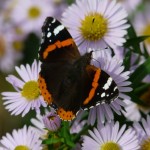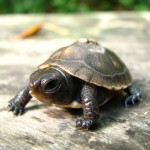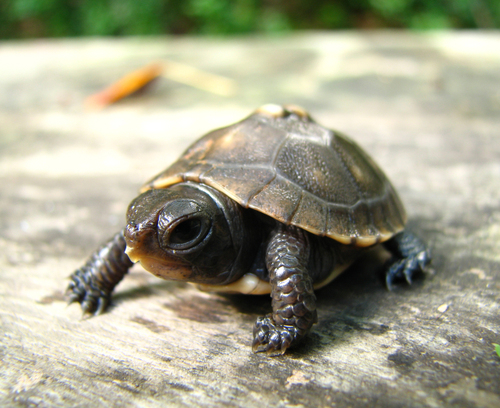 Like years past, 2011 has been full of both triumph and loss. Precious habitat was saved. Conservationists continued to educate and inspire others to help preserve our natural world. In addition, new plant and animal species were discovered; however, a few were also considered to now be extinct. With all of our great accomplishments over the last 365 days, I believe we can do better.
Like years past, 2011 has been full of both triumph and loss. Precious habitat was saved. Conservationists continued to educate and inspire others to help preserve our natural world. In addition, new plant and animal species were discovered; however, a few were also considered to now be extinct. With all of our great accomplishments over the last 365 days, I believe we can do better.
Whether we are aware of it or not, we are all interconnected to each and every living thing on this planet. All of our actions, good or bad, have an effect on others. I meet people every day that have the best of intentions to help wildlife and the environment. Some describe huge projects and fundraising ideas that sometimes take months if not years to accomplish. And please do not get me wrong, I completely understand the benefit of such undertakings. However, more times than not, dedicating 10 minutes a day to do something that benefits our environment and/or wildlife can make the biggest difference.
good or bad, have an effect on others. I meet people every day that have the best of intentions to help wildlife and the environment. Some describe huge projects and fundraising ideas that sometimes take months if not years to accomplish. And please do not get me wrong, I completely understand the benefit of such undertakings. However, more times than not, dedicating 10 minutes a day to do something that benefits our environment and/or wildlife can make the biggest difference.
How many people do you know recycle? As the human population continues to increase so too does the rate of consumption and waste production. It will probably come as no surprise, but in our house we recycle everything that cannot be reused. We have separate bins for cardboard, plastic, tin and aluminum cans, glass, office paper, and plastic bags. In addition, we compost all organic waste into a container in our garden. Placing recyclables into the appropriate bins takes less than 5 minutes a day, but the rewards are huge. Recycling keeps landfills from overflowing, oceans and wild areas clean, and allows for new products to be manufactured from old ones.
 Energy efficient homes have both short and long term benefits. Take a look around your house and try to identify any places were energy is wasted. Do you have electronics that are constantly plugged in? Do you have doors and windows that allow cold air to leak into your home and warm air out? Do you really need to have lights on in unoccupied rooms? Do you have faucets that drip water when not in use? These are just a few examples of how energy can be wasted and you could be paying for it either in monetary terms or the negative effects these problems have on environment. Installing power strips that can be easily turned off and on, resealing around windows and doors, making sure your home is properly insulted, replacing leaky faucets, or simply turning down the thermostat by one degree can make a big difference. In addition, collect rain water for use in gardens and on lawns during times of decreased precipitation so clean water is not wasted.
Energy efficient homes have both short and long term benefits. Take a look around your house and try to identify any places were energy is wasted. Do you have electronics that are constantly plugged in? Do you have doors and windows that allow cold air to leak into your home and warm air out? Do you really need to have lights on in unoccupied rooms? Do you have faucets that drip water when not in use? These are just a few examples of how energy can be wasted and you could be paying for it either in monetary terms or the negative effects these problems have on environment. Installing power strips that can be easily turned off and on, resealing around windows and doors, making sure your home is properly insulted, replacing leaky faucets, or simply turning down the thermostat by one degree can make a big difference. In addition, collect rain water for use in gardens and on lawns during times of decreased precipitation so clean water is not wasted.
Although we are a long way from spring and summer here in the Northern hemisphere, it is never too early to plan ahead. For some reason we have evolved into a society that wants manicured lawns and meticulously weeded flower beds that are free of insects and small mammals. Regardless of target, products such as fertilizers, pesticides, herbicides, and insecticides are indiscriminant killers. Furthermore, these chemicals seep into groundwater and pose health threats to humans and eventually inhabitants of streams, rivers and even oceans. This year why not have a more environmentally friendly yard? Fill your flower beds with native wild flowers for birds, butterflies, and bees. Instead of raking glass clippings allow them stay on your lawn and act as a natural fertilizer. Seek out safer alternatives to control pest problems like the use of pyrethrins, moth balls, and beneficial nematodes. Changing the world to be a better place begins in your own backyard.
have evolved into a society that wants manicured lawns and meticulously weeded flower beds that are free of insects and small mammals. Regardless of target, products such as fertilizers, pesticides, herbicides, and insecticides are indiscriminant killers. Furthermore, these chemicals seep into groundwater and pose health threats to humans and eventually inhabitants of streams, rivers and even oceans. This year why not have a more environmentally friendly yard? Fill your flower beds with native wild flowers for birds, butterflies, and bees. Instead of raking glass clippings allow them stay on your lawn and act as a natural fertilizer. Seek out safer alternatives to control pest problems like the use of pyrethrins, moth balls, and beneficial nematodes. Changing the world to be a better place begins in your own backyard.
 As we are just days away from the New Year let us all promise to continue to make a positive difference for humans and animals alike. Let us continue to show others kindness, compassion, and respect. As we are ourselves are inspired, let us also inspire others to do great things. So much can be accomplished if we just put forth an effort. Slow and steadily truly does win the race. I wish you all a very Happy New Year, and thank you for your continued support and love of wildlife life and wild places.
As we are just days away from the New Year let us all promise to continue to make a positive difference for humans and animals alike. Let us continue to show others kindness, compassion, and respect. As we are ourselves are inspired, let us also inspire others to do great things. So much can be accomplished if we just put forth an effort. Slow and steadily truly does win the race. I wish you all a very Happy New Year, and thank you for your continued support and love of wildlife life and wild places.
